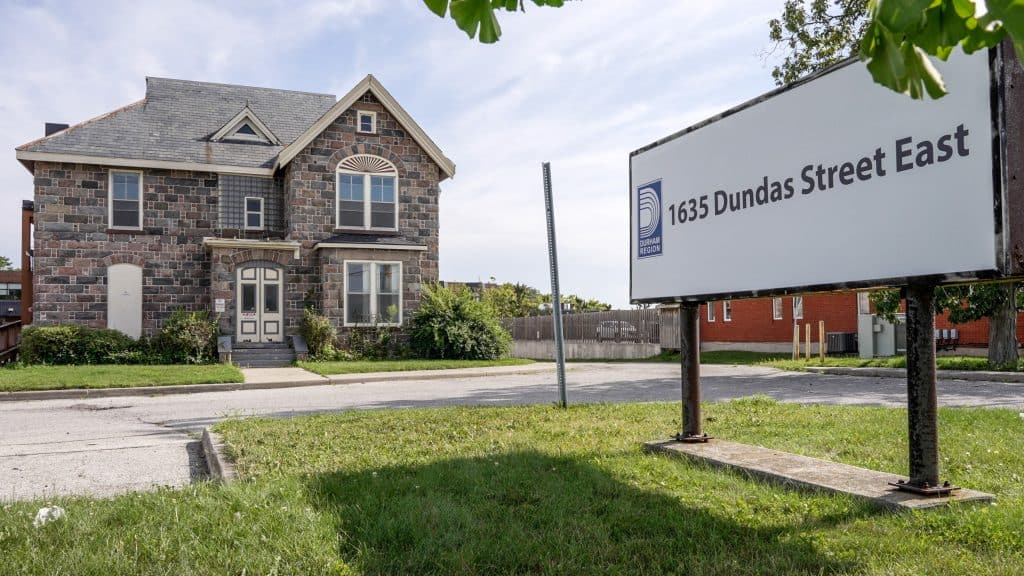Durham Chair updates Pickering Council on ‘safe and supportive’ homeless shelter in Whitby
Published October 8, 2024 at 9:40 am

With 780 people on the Region of Durham’s ‘By-Name’ list, the opening of a 45-bed shelter on Dundas Street in Whitby in March was an important step in providing a home for the region’s most vulnerable, Durham Chair John Henry told Pickering councillors Monday night.
Henry and Durham CAO Elaine Baxter-Trahair were in the chambers Monday giving an update on the Region’s efforts on several fronts this year, with the homeless shelter – approved after an eight-month battle with a vocal segment of the community – front and centre on the agenda.
With World Homeless Day coming up Thursday, it was an appropriate time for Henry to deliver an update on the “contentious but important” low barrier homeless shelter at 1635 Dundas St. W.
The shelter has provided a “safe and supportive environment” for the homeless and twenty former residents have already found permanent homes outside the shelter, Henry said.
“There’s also a waiting list of more than a hundred people who have asked to go to 1635.”
Pickering Councillor David Pickles said approving the conversion of the former long-term care home into a shelter against much opposition was a “contentious but important decision” by Regional Council.
“It’s a homeless shelter but it’s much, much more.”
The Region is already moving onto Phase 2 in the development of the shelter, with feedback gleaned from the public at public information sessions August 30 and October 3.
The site is currently capped at 45 beds but concept site plans allow for an additional 70 supportive housing units, with some of those beds allocated for palliative care, others for addiction recovery and some for victims of human trafficking or partner violence.
The shelter is in a building which was initially built as a farmhouse in the 1880s and was converted into the Sunnycrest Nursing Home in the 1950s. The nursing home was forced to shut down in 2020 after a ministry report declaring it had caused “actual harm” to residents during the pandemic, with 34 residents dead in the early months of the COVID-19 pandemic thanks to inconsistent infection prevention and control practices and other transgressions.
The property sat vacant until 2023 when the property was bought by the Region, with an announcement that fall that it would be turned into a homeless shelter.
That set off a firestorm of anti-homeless rhetoric from some residents, with public engagement sessions quickly turning violent with one man physically threatening Whitby Mayor Elizabeth Roy and Councillor Maleeha Shaheed.
With Durham’s unsheltered population nearly tripling during the pandemic and resources for homelessness “exhausted,” the Region continued to push for support for the shelter, though the pushback prompted several concessions on the project such as tighter security and a lower resident cap.
Christian Faith Outreach Centre is the service provider for the shelter and provides a wide range of supports and services to help residents get back on their feet, including:
- On-site mental health and addictions support provided by Lakeridge Health/Pinewood
- On-site harm reduction support services, housing, and employment assistance provided by John Howard Society
- Medical support provided by Durham Community Health Centre (DCHC).
- Arts Programming
- We Grow Food Gardening project
The shelter spaces, both current and future, will provide indoor space as the urgent need to provide shelter for Durham’s vulnerable population continues to grow, Henry added. The ultimate goal, he said when the shelter opened, “is to end chronic homelessness.”
INdurham's Editorial Standards and Policies




